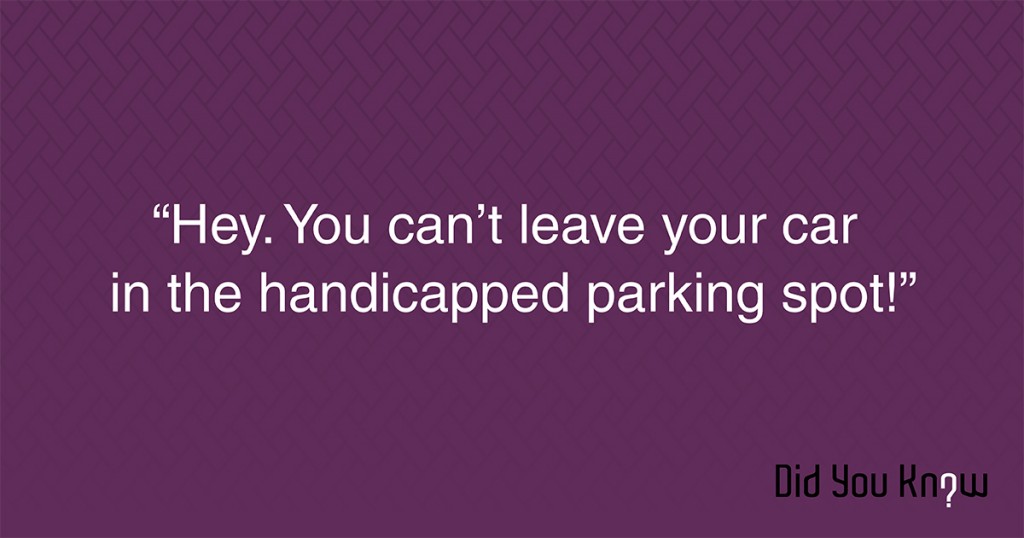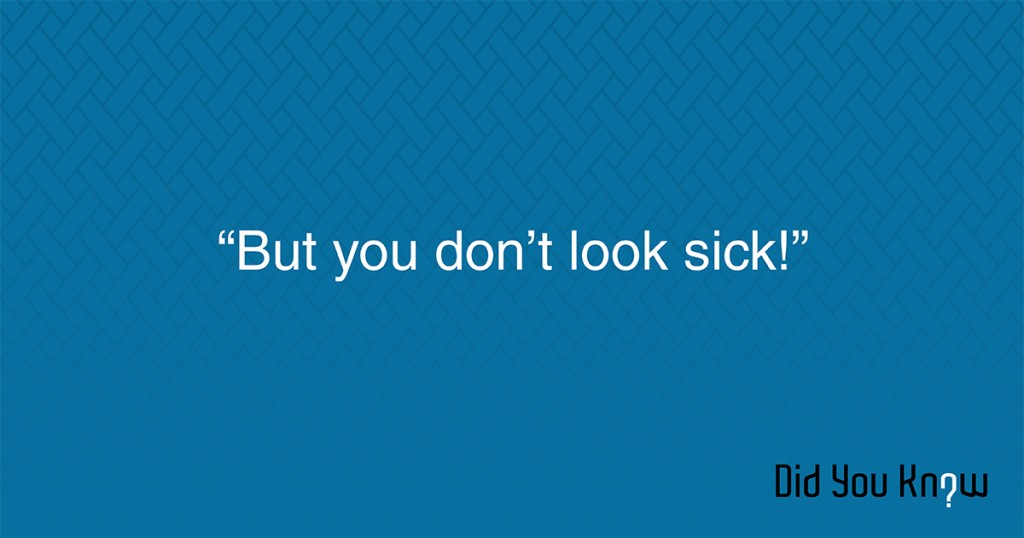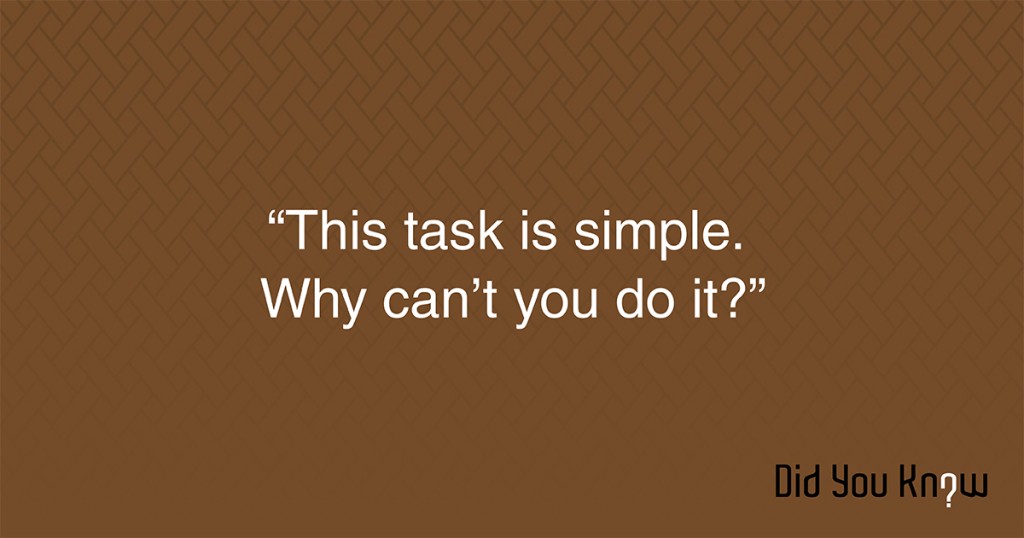- A
- A
- A

Have you observed a seemingly normal person parking in a handicapped spot with a permit tag? Or perhaps you’ve noticed a student having used a request for extended time for taking a test and wondered whether the disability claim was valid. Have you seen a person walking down an aisle of a grocery store and they seem to be ignoring the person behind saying, “Excuse me?”

Did you know that while some disabilities are visible to onlookers, some other disabilities are not obvious, which is often mentioned by experienced individuals as “invisible” or “hidden” disabilities? People with invisible disabilities often face specific challenges and tasks in their workplaces, communities, and when traveling. The reality of an individual with a disability can be difficult for others to recognize or acknowledge. However, the more we learn about a wide spectrum of hidden disabilities, including but not limited to, chronic pain, depression, and dyslexia, the better we can understand what individuals with invisible disabilities go through on a daily basis.

Did you know that there is a long list of what are considered to be invisible disabilities? The severity of disabilities varies: learning differences, deafness, autism, prosthetics, Traumatic Brain Injury (TBI), mental health disabilities, Usher syndrome, bi-polar disorder, diabetes, ADD/ADHD, fibromyalgia, arthritis, Alzheimer’s, anxiety, sleep disorder, Crohn’s disease, and many more. Many types of disabilities can sometimes limit daily activities and also vary for individuals, although they are not often noticeable to other people.
Did you know that people with invisible disabilities are often scrutinized by society as looking “able-bodied?” As you may know, some disabilities are more visible and apparent than others, especially if someone uses a wheelchair, a walking cane, a service animal, or assistive technology. Since many individuals with invisible disabilities look able-bodied and/or healthy, they receive boundless criticism about their disability status from family, friends, co-workers, and the community.
Did you know that the fear of contempt from their communities often make them prefer not to talk about their disability? According to the Americans with Disabilities Act of 1990 (ADA), an individual with a disability is a person who: has a physical or mental impairment that substantially limits one or more major life activities; has a record of such an impairment; or is regarded as having such an impairment. Employers are required to provide accommodations to people with disabilities at their workplaces. It is up to individuals with hidden disabilities to disclose their needs to their employers. However, some people with invisible disabilities often prefer to not talk to their employers about their needs, which is entitled under the ADA law, due be worried about prejudice.
Did you also know that trying to hide their invisible disabilities for fear of stigma might also create added anxiety? Research shows that the stress of hiding a disability in both social and work environments may affect their well-being and health. However, this stress may be relieved through disclosure, which also increases opportunities for joining or developing social support group with others of similar disabilities or experiences.
Did you know you could help put an end to the stigma of people with invisible disabilities? In the community, people often judge others by what they observe and often determine a person can or cannot do something by how they look. For example, a person who seems able-bodied is expected to be able to do daily tasks and at the same time, a person who uses a wheelchair is often seen as unable to perform basic tasks. Everyone with a disability is unique to their own set of challenges and needs, as well as abilities and attributes. We all can learn to not criticize people by their appearance and have patience with one other.

For examples of what you may do in situations alongside an individual with an invisible disability:
- If your friend said that they are unable to perform certain tasks that seem simple to you, believe them.
- If someone is opening up to you about their hidden disabilities, don’t assume they’re lying or making it up.
- If you see an able-bodied individual pre-boarding first on a plane without paying for upgrades, acknowledge that they may have disabilities that follow the Air Carrier Access Act and the airlines’ policies.
- If the person you’re trying to talk to doesn’t appear to understand your questions or commands, be patience. To interact, you can repeat yourself, rephrase your comment or question, or ask if they understand you.
- If the person is autistic, don’t assume they don’t like you if they don’t look at you.
- If someone with epilepsy asks you to stop using the flash on your camera while you are photographing in a room, respect their wishes.
- If a person is parked in an accessible parking spot with valid tag or license, they may have chronic pain, multiple sclerosis, an illness, or injury that we cannot see. Do not assume they’re parking illegally.
- If a student got a valid request for extended test-taking time, keep in mind that they may have a learning disability and need extra time to process information.
- If the person seems to be oblivious to other people talking to them, they may be deaf and hard of hearing and does not realize anybody is trying to talk to them from behind.
- If someone is unable to do a task, instead of assuming they are lazy, ask, “What do you need to accomplish this task?”
- If you think someone may need help, ask!
- If you know someone who has an invisible disability, don’t assume that you’d understand the needs of all individuals with different disabilities.
In most instances, you don’t need to know what their disability. Unless it is disclosed, no one knows for sure whether someone has an invisible disability.
Now, the more you know about many different people living with invisible or hidden disabilities, the more effort you can put in to apply the Golden Rule to our lives. The Golden Rule: “Do unto others as you would have them do unto you.”